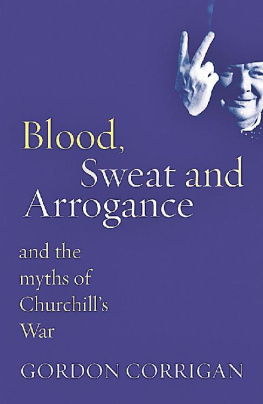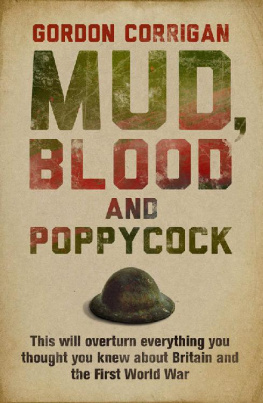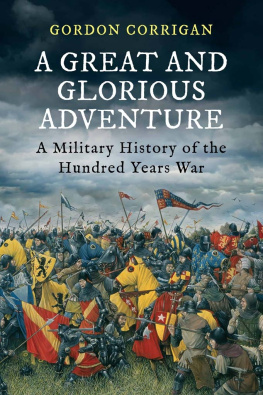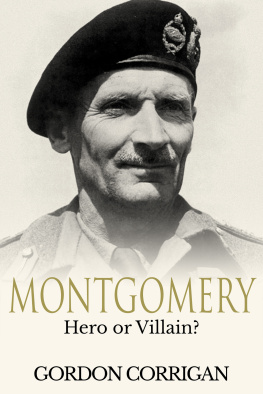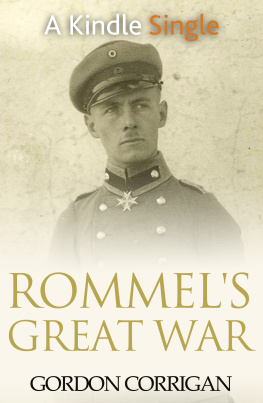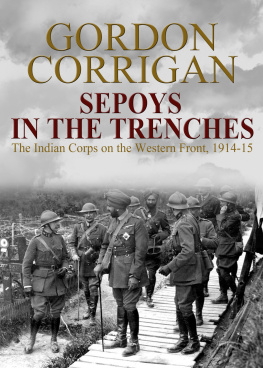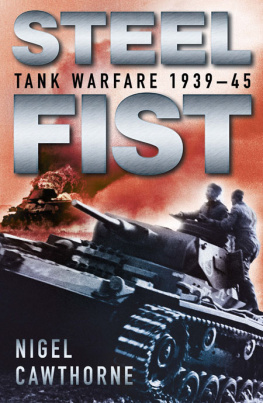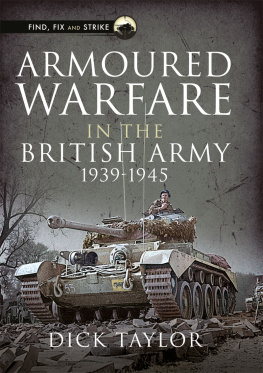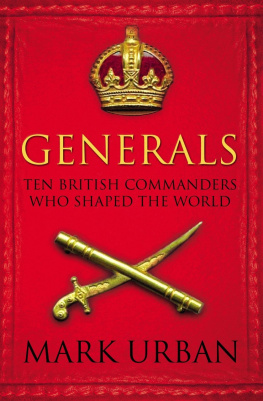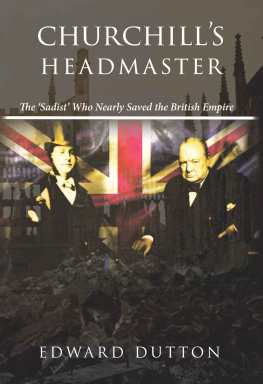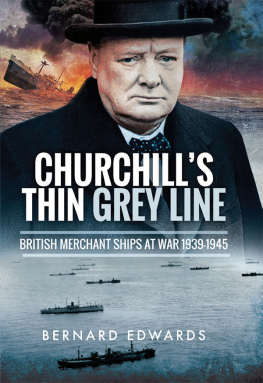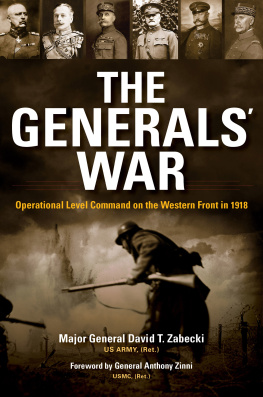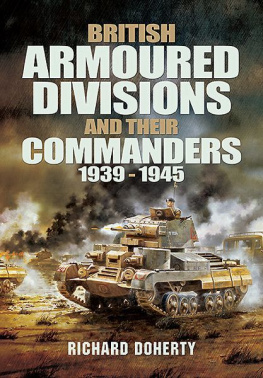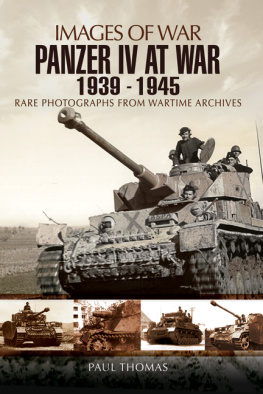BLOOD, SWEAT
AND ARROGANCE
and the Myths of Churchills War
Gordon Corrigan

Contents
List of Illustrations
List of Maps
Introduction
IN 1939 BRITAIN WENT to war to save the world from fascism and dictatorship. Let down by the perfidious Belgians and French, greatly outnumbered by swarms of German tanks, the British army fought its way back to the French coast. The miracle of Dunkirk, made possible by hundreds of little ships sailed by their patriotic civilian owners, brought the soldiers back to England to fight another day. Now Britain stood alone against the whole might of the German Wehrmacht and their cowardly Italian poodles. The people of Britain girded themselves for total war. They threw out the appeasers and the disarmers, sacked the incompetent generals and brought Winston Churchill, soldier, sailor and statesman, to power on a tide of public acclaim. He could offer nothing but blood, toil, sweat and tears, but, as King George said, at least we no longer had to worry about allies.
Through the Battle of Britain the Few young public schoolboys to whom the game was the thing held at bay the far more numerous Luftwaffe, while the people stoically withstood the Blitz, as death rained from the skies. Meanwhile the Prime Minister was cutting out the dead wood. Gort, Dill, Ironside, Wavell, Cuningham, Auchinleck all went: tired old men consigned to the dustbin of history until at last a new star appeared in the military firmament. Before Montgomery there was only defeat, after him there was nothing but victory. There is no God but Churchill, and Montgomery is his prophet.
After Britain had been the sole standard bearer for freedom for over two years, the New World came at last to the assistance of the Old, and with American entry into the war Britain no longer stood alone. In 1944 she returned to Europe, as she always knew she would, and under the National Treasure Montgomery, her army and air force fought on until final victory in Europe, followed by the defeat of Japan in the Far East. It was the end of a great struggle for the rights of man, and it was to Britain, which had fought for longer than any of the Allies, that much of the credit was due. Or so popular British opinion of the Second World War would usually have it. To most of the British public the First World War is generally thought of as unnecessary at best, mismanaged and a wholesale slaughter of British youth at worst. The Second War, on the other hand, is seen as a moral crusade where plucky Britain stood up to the evil dictators and won great victories. Having learned the lessons of the First War, the Second was far more competently conducted and the death toll a mere fraction of that incurred in 191418. The Kaiser was not such a bad chap, while Hitler was an evil monster; the causes of going to war in 1914 were not understood by the United Kingdom populace at large, while in 1939 everybody knew why we had to fight and supported the decision wholeheartedly. In 1914 we had the dithering Asquith as Prime Minister, and could not get rid of him until 1916, while we very quickly replaced the weak Chamberlain whose appeasement of the fascists led to war in the first place by the great war leader and strategist Winston Churchill in 1940.
The Second World War has become heroic myth in Britain. Criticism of the conduct of the First War began a mere twelve years after it ended, but even with the passing of the sixtieth anniversary of the ending of the Second, Britain is thought to have gone to war for the right reasons, and to have fought well after initial setbacks. The political and military leadership is considered to have been good, and better than during the First War.
This perception makes it difficult to face the fact that in 1940 the British and the French between them had more and better quality tanks than the Germans, and more infantry divisions; yet in the Battle of France they were constantly outmanoeuvred by fast moving German columns of all arms. Holland, Belgium and France all fell, and Britain was bundled unceremoniously out of Europe. At about the same time the hastily executed Norway invasion was abandoned and the troops withdrawn.
How could the nation which in 1918 had the best and most technologically advanced army in the world, the biggest navy and the only independent air force perform so badly a mere twenty years later, and against the same enemy that she had resoundingly defeated in 1918? In the approach to the Second War the British army was the only army made up of long-term regulars, volunteers all. It was the only army that had considerable experience of active service against third-rate enemies it is true, but a ball from a home-made Pathan rifle will kill as surely as that from a modern machine gun, and with more discomfort. Of the original belligerents only Britain had a fully mechanised army, having long accepted that there was no place for the horse on the modern battlefield, and yet with all this, in 1940 it was outfought and outgunned and forced into a humiliating scuttle in a mere three weeks.
This book argues that the very nature, purpose and experience of the British armed forces militated against their performing well at the beginning of the Second World War. Unlike their German opponents, which had nothing to do except prepare for war on the continent of Europe, the British had an empire to police. The British army, navy and air force were spread around the world in penny packets, and priorities in methods, training and equipment reflected that for very practical reasons. Britain had invented the tank, but inter-war development in Britain had gone down a blind alley, and instead of the tank being seen as only one element albeit an important one in a coordinated effort by all arms, it was regarded either as something which could be slow and ponderous to support the infantry, or the land equivalent of a destroyer, roaming the battlefield at will and operating independently. The Germans took a different view, and Blitzkrieg was the result.
In arguing that the British armed forces did not do well in the Second World War or at least not as well as they might, and not as well as they had done in previous conflicts I have no wish to be considered an iconoclast. I spent most of my adult life in the British Army and I am proud of its past and of what it has done. I spend a great deal of time studying its history, and that of the Royal Navy and the Royal Air Force. I find that most of our military history is deserving of great pride, and I have no intention of biting the hand that fed me for over thirty years. All that said, we can only learn how to manage future conflicts by examining the lessons of previous ones, and while a major world conflict may be some way off, it was that assumption in the years up to the mid 1930s that contributed in large part to our failures when war did come.
In this book my aim has been to re-examine some of our parameters, and ask what effect appeasement and financial constraints prior to 1939 had on our war-making ability; whether we really could have stopped Hitler short of war; what we actually went to war for, and then how we conducted that war once we found ourselves with no option but to wage it. My original intention was to look at the British waging of the war as a whole. When I realised that the result would be a door-stop of impressive proportions, I decided to consider only the war in the West: that waged against Germany and Italy, and to leave the Far East for another occasion. Of course the war in the West and that in the East were not fought in isolation; Britains military assets were finite, and the hard decisions as to which theatre should have priority and when would merit a study in themselves. Far Eastern neglect and underfunding was even worse than that nearer home, and the Malayan campaign was at least as incompetently managed as that in Norway, but it was the Far East that produced the general whom I believe future historians will consider the best British general of the war Field Marshal Sir William Slim. In neglecting the Far East in this book I do not in any way underestimate the significance of that theatre and of the men who fought there.
Next page
